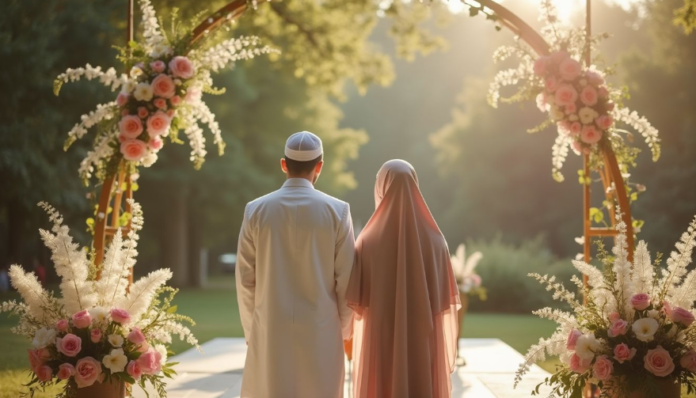In an unusual twist to a traditional ceremony, a couple was compelled to exchange wedding vows via video call after the groom’s boss in Turkey denied his request for leave. Adnan Muhammad, originally from Bilaspur, Chhattisgarh, and his bride, based in Himachal Pradesh, declared their “Qubool Hai” (I accept) through a virtual platform, honoring the wishes of the bride’s ailing grandfather to witness the union.
Muhammad, who had planned to travel to India for the ceremony, found himself unable to leave Turkey due to work constraints. With time running short and family expectations high, the couple and their families explored alternative arrangements, settling on a video call to solemnize their wedding.
The groom’s family carried out a traditional baraat (wedding procession) from Bilaspur to Mandi, Himachal Pradesh, where they coordinated with a qazi (Islamic judge) to perform the wedding rites remotely. The families exchanged vows over the call, allowing them to celebrate within the bounds of cultural tradition despite geographic limitations.
The use of technology for weddings is not new to Himachal Pradesh. In July 2023, flash floods and landslides disrupted another planned ceremony between Ashish Singha and Shivani Thakur, who resorted to a video call for their vows. The COVID-19 pandemic also saw a wave of digital weddings, including one in Kerala where a couple, Vignesh KM and Anjali Ranjith, exchanged vows on Zoom, allowing guests to join from afar.
For Adnan Muhammad and his bride, this unplanned virtual wedding fulfilled their families’ wishes while respecting the groom’s work obligations, marking yet another instance of how couples today are redefining marriage in a connected world.



